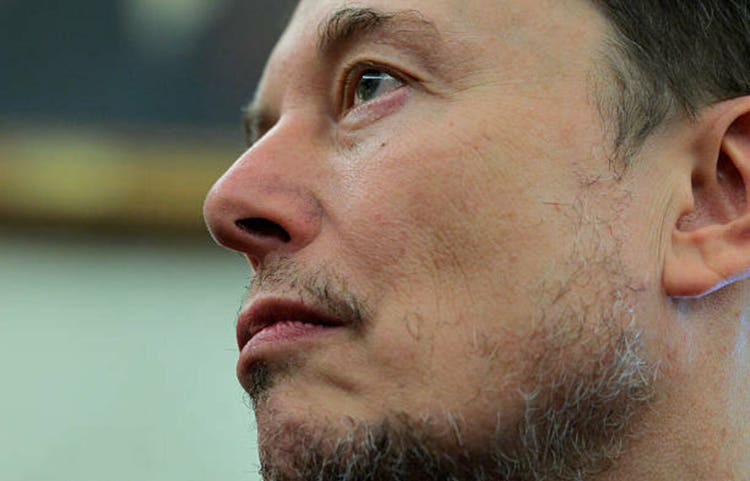
Photo by Al Bello/Getty Images
Getty Images
In a July 21, 2025 decision, the United States Court of Appeals for the First Circuit affirmed a lower court’s ruling that baseball’s exemption from antitrust laws – which dates to 1922 – extends to the Liga de Béisbol Profesional Roberto Clemente, Puerto Rico’s top professional baseball league. Nevertheless, in so doing, the court acknowledged the Supreme Court’s description of the exemption as “unrealistic,” “inconsistent,” and “aberrational.” Yet the exemption has evaded the Supreme Court’s review, including through a 2023 settlement of a lawsuit concerning minor league affiliates. The First Circuit’s decision nonetheless may put the exemption back in the Court’s crosshairs.
Baseball’s Antitrust Exemption
In 1915, the professional baseball league known as the Federal League was forced to fold after just two seasons of play because it was unable to acquire sufficient talent. At that time, clubs in the National League and American League (operating then as Organized Baseball and known today as Major League Baseball (MLB)) forced players to sign contracts containing restrictive reserve clauses, which effectively barred players from playing for any other club without their approval. Rather than pursue litigation, the owners of seven clubs in the Federal League accepted $50,000 payments and interests in MLB clubs.
The eighth and final club, hailing from Baltimore, refused the payoffs and instead initiated litigation arguing that MLB’s reserve clause system violated Section 1 of the Sherman Antitrust Act, which prohibits two or more parties in a market from reaching an agreement which unreasonably restrains that market. In this case, the Baltimore club alleged that the MLB clubs had unlawfully agreed not to compete or permit competition for the services of professional baseball players.
A jury initially ruled in Baltimore’s favor, awarding damages of $240,000. However, an appellate court reversed, holding that because baseball was not interstate commerce (generally a predicate for the application of federal legislation), the Sherman Act did not apply.
In 1922, the Supreme Court affirmed that legal conclusion. The decision was based in part on the Supreme Court’s narrow interpretation of interstate commerce in the early twentieth century and also a likely bias in favor of America’s pastime. Thus was born baseball’s exemption from federal antitrust law.
The Supreme Court reluctantly upheld the exemption 1953 when a minor leaguer challenged the reserve system (Toolson), reasoning that baseball had developed for more than 30 years based on the understanding that it was exempt from antitrust laws and that any change to the exemption should come from Congress. In fact, legislation concerning the exemption was heavily considered in the 1950s, but no action was ultimately taken. In the same decade, the Supreme Court ruled that the exemption was limited to baseball and did not extend to other sports.
The Supreme Court reached the same conclusions in 1972, turning away another challenge to the reserve system, this time by long-time major leaguer Curt Flood. At the same time, the Court clarified its position that professional baseball is interstate commerce but described the Federal Baseball decision as “an anomaly” and “an aberration.”
After a players’ strike in 1994 caused the World Series to be cancelled for the first time since 1904, Congress finally took some action. In the Curt Flood Act of 1998, Congress repealed the exemption insofar as it concerned MLB players but left it alone with regard to other areas of baseball.
The Narrow Save in Nostalgic Partners
In 2020, MLB and its clubs made the decision to pare down the number of minor league affiliates from 160 to 120. As had happened more than 100 years earlier, it is believed that the owners of many of the minor league teams that were cut accepted payments from MLB in lieu of litigation.
But a few clubs – including the Staten Island Yankees owned by Nostalgic Partners, LLC – took the route chosen by the Federal Baseball Club of Baltimore and sued, alleging that the actions of MLB and its clubs violated the Sherman Act by refusing to do business with the excluded clubs, known as a group boycott. The clubs, represented by legendary sports law litigator Jim Quinn and his former firm Weil, Gotshal & Manges LLP, acknowledged their claims were likely barred by baseball’s antitrust exemption. Consequently, they requested the courts to recognize the legitimacy of their claims if it were not for the exemption and then to dismiss the case as fast as possible so that they could appeal to the Supreme Court.
The strategy largely worked. The case was filed in December 2021 and by September 2023, the plaintiffs had filed a robust and promising petition for review by the Supreme Court. Along the way they received some helpful language from the lower courts and briefs in support from a wide range of parties, including the United States Department of Justice, both Democratic and Republican politicians, local governments, and academics.
In November 2023, before the Supreme Court had decided whether to take the case, the parties settled. While the terms of the settlement were confidential, it is generally understood that MLB paid a considerable sum to the complaining clubs in exchange for preserving its antitrust exemption.
The Cangrejeros Case
In July 2022, while the Nostalgic Partners’ case was under consideration by a federal court in New York, another challenge to baseball’s antitrust exemption was filed. But this time, MLB was not involved.
In October 2019, Thomas Axon, a financial professional from New York, bought the controlling share of Cangrejeros de Santurce, one of six teams playing in the Puerto Rican professional league. The club played its home games at the Hiram Bithorn Stadium, a publicly-owned facility in the capital of San Juan.
Axon and the mayor soon fell out over the stadium’s condition and Axon threatened to move the club to Humacao, a city about an hour away. The league, led by President Juan A. Flores-Galarza, apparently did not take kindly to Axon’s proposal. According to the allegations in Axon’s lawsuit, Flores-Galarza sent a letter to Axon advising him that he had engaged in conduct “detrimental to baseball” and to the league in violation of the league’s Constitution. Flores-Galarza, with the support of the owners of the other five clubs, then voted to suspend Axon for two years.
Axon sued in a Puerto Rican court to stop the suspension. However, the court curiously determined that because Axon was suspended, he was no longer a member of the league and therefore was not entitled to the protections and procedures of the league’s Constitution.
The league thereafter permanently seized Axon’s interests in the club and sold it to Impulse Sports, with the support of the San Juan government.
Axon and his business entity sued, alleging that the actions of the league, its clubs, Flores-Galarza, and Impulse Sports violated the Sherman Act and Puerto Rico’s antitrust statute. Axon also alleged violations of contractual and due process rights under federal and Puerto Rican law.
Of note, Axon is represented in the matter by Jeffrey Kessler of Winston & Strawn LLP, perhaps the world’s most prominent sports litigator, who got his legal career started under Quinn at Weil Gotshal.
In June 2023, the United States District Court for the District of Puerto Rico dismissed Axon’s case in its entirety, primarily based on a finding that the alleged wrongful conduct was protected by baseball’s antitrust exemption.
On July 21, 2025, the First Circuit affirmed in part and reversed in part the lower court’s decision. While acknowledging the “longstanding criticism” of Federal Baseball, the First Circuit recognized that it “must apply” the antitrust exemption unless and until it is reversed by the Supreme Court.
Additionally, the court rejected the plaintiffs’ argument that the exemption was limited to MLB, noting that the Supreme Court regularly described the exemption as applying to the “business of baseball.” While some courts have found certain cases outside the exemption, the court found that the conduct complained of here squarely fit within the definition of the “business of baseball.”
The First Circuit nevertheless reinstated the plaintiffs’ claims under Puerto Rico law. Notably, the court held that the Sherman Act did not preempt Puerto Rico’s antitrust law under the circumstances since the Puerto Rican baseball league operates entirely within that territory and therefore may not “impermissibly burden interstate commerce.”
The Next At Bat
The plaintiffs could have, but did not, seek review from the entire panel of First Circuit judges.
The case is therefore being remanded back to the District Court for reconsideration of the plaintiffs’ claims under Puerto Rico law.
Alternatively, the plaintiffs have until October 20, 2025 to file a petition for review with the Supreme Court. There are reasons to believe the Supreme Court would be interested and would finally reverse Federal Baseball – the Supreme Court has been more willing in recent years to overturn long-held precedents, it has recently unanimously ruled against both the NFL and NCAA in antitrust cases, and Justice Samuel Alito in particular has written and spoken about the errors of Federal Baseball.
Settlement also appears less likely given that the Puerto Rican defendants do not have the deep pockets of MLB. Consequently, baseball’s antitrust exemption may finally get the Supreme Court review and reversal that has been decades in the making.
Axon’s counsel, Winston & Strawn LLP, did not respond to a request for comment.
.png)









 English (US) ·
English (US) ·